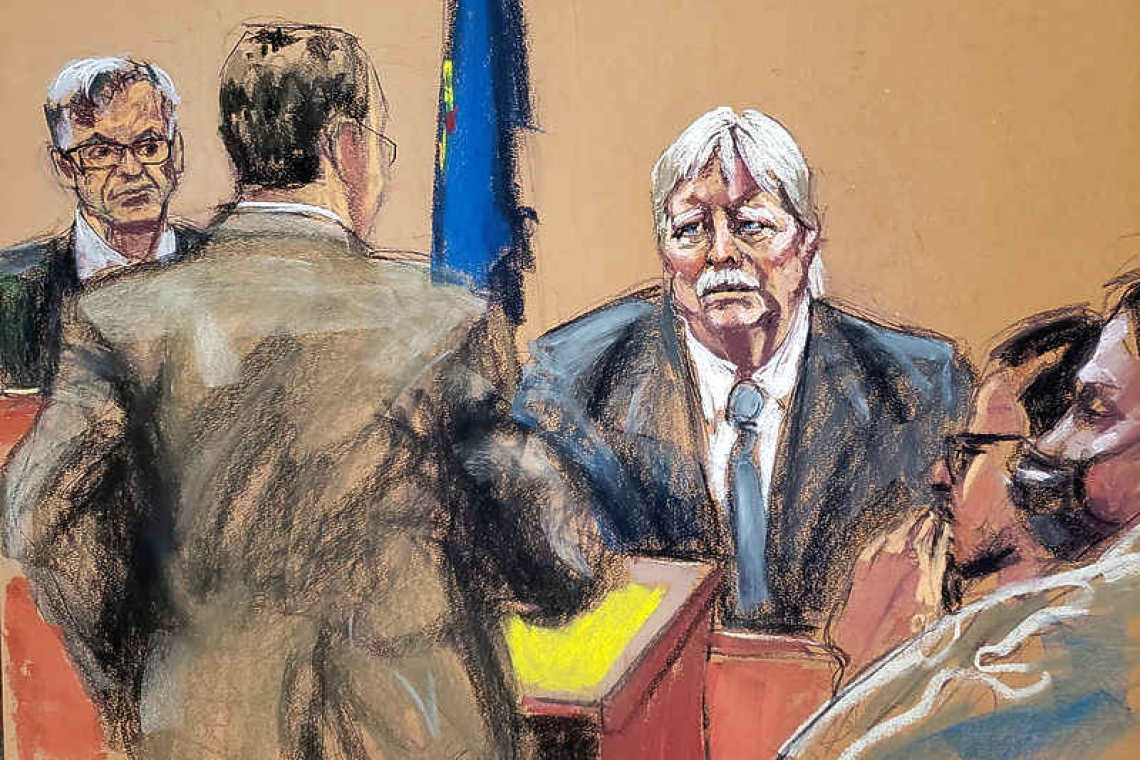Witness Jeff McConney is questioned by Joshua Adam Steinglass as he testifies during the Trump Organization's criminal tax trial in Manhattan Criminal Court, New York City, U.S., on Monday.
NEW YORK--Former President Donald Trump's real estate company cheated tax authorities for 15 years, a prosecutor said on Monday in her opening statement in the Trump Organization's criminal tax fraud trial, while defense lawyers countered that the company's longtime chief financial officer had acted for his own benefit.
The company paid certain executives - including former CFO Allen Weisselberg - in perks such as rent and cars without reporting those benefits to tax authorities, and falsely reported bonuses as non-employee compensation, said prosecutor Susan Hoffinger of the Manhattan district attorney's office.
"This case is about greed and cheating, cheating on taxes," Hoffinger said. "The scheme was conducted, directed and authorized at the highest levels of the accounting department at the company."
The case is one of several legal troubles facing the 76-year-old Trump as he considers another bid for the presidency after losing in 2020. Trump has not been charged in the case.
Weisselberg, who has worked for Trump for nearly half a century, in August pleaded guilty to avoiding taxes on $1.76 million in personal income and agreed to testify at trial as part of a plea deal for him to receive a sentence of five months in jail. He paid back nearly $2 million in taxes, penalties and interest, Hoffinger said.
Both Trump Organization units charged - the Trump Corporation and the Trump Payroll Corporation - have pleaded not guilty. Their lawyers argued on Monday that Weisselberg was not acting on the company's behalf.
"Weisselberg did it for Weisselberg," Michael van der Veen, a lawyer for the Trump Payroll Corporation, said in his opening statement. "Greed made him cheat on his taxes, hide his deeds from his employer, and betray the trust built over nearly 50 years."
Hoffinger said Weisselberg was "a prime beneficiary" of the scheme. But she said he acted as a Trump Organization executive, and that the company benefited by keeping top executives happy and saving on taxes.
Hoffinger said Trump paid for the private-school tuition of Weisselberg's grandchildren, adding that the jury would see checks signed by Trump himself as evidence.
Van der Veen sought to shift blame to accounting firm Mazars, which handled the company's and Weisselberg's tax returns. Mazars did not immediately respond to requests for comment. In February, the firm dropped the Trump Organization as a client and said financial statements it prepared for the company from 2011 through 2020 should no longer be relied on.
If convicted, the Trump Organization - which operates hotels, golf courses and other real estate around the world - could face $1.6 million in fines. It could also further complicate the real estate firm's ability to do business.
The trial is expected to last over a month. Twelve jurors must reach a unanimous verdict for conviction on each count of tax fraud, scheming to defraud, and falsifying business records.







